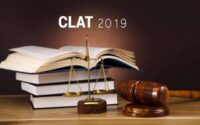VACCINE EQUITY – A KEY CHALLENGE
This article is written by Girija Rani Mullapudi from Damodaram Sanjivayya National Law University (DSNLU).
“Vaccines Don’t Save Lives – Vaccination Save Lives”
INTRODUCTION
Creating an effective vaccine is half the journey, the main objective is to getting it to people’s arms to facilitate actual real protection; a process that has its own different set of obstacles like logistical, supply, distribution, and ethical challenges. This is the largest mass vaccination campaign and most rapid one in to be ever witnessed and also comes with manufacturing complexities, a probable lack of facilities and ways to ship and store these vaccines, not to forget the complications with the second dosage. The question then arises of who should get vaccinated first; and doing this equitably is critically important because we know there is structural imbalance as to the impact of the pandemic on different people.
WHAT DOES VACCINE EQUITY MEAN?
The equitable distribution of vaccines worldwide is essential to ending infectious diseases that spread rapidly between countries. The fair and equitable access to vaccines has emerged as a major issue. Government bodies in various countries, the WHO and various other organisations are working on this problem, and are developing guidelines and ethical norms.
WHO issued a call in January 2021 to all countries to work together in unity – and in each other’s best interests – to ensure that vaccination of health workers and older people was underway in all countries within the first 100 days of the year. This call to action is at the core of WHO’s #VaccinEquity movement, which seeks to end the pandemic and the disparities that are at the root of numerous public health issues while also driving a global recovery.
The #VaccinEquity Declaration has been signed by tens of thousands of people and nearly 1500 organisations from all over the world by day 100. About half a billion doses of COVID-19 vaccine have been distributed globally, with over 38 million COVAX doses delivered to over 100 countries and economies.
The COVID-19 Vaccine Equity Project (CVEP) seeks to address these more localised issues in low and middle-income countries by assisting with vaccine monitoring, supply management, community involvement, and more.
The greatest obstacle to ending the pandemic’s acute stage and pushing a global recovery remains to be a shortage of vaccine supplies and inequitable delivery of vaccines. Trade and tourism will be affected as long as the outbreak is spread around the world, delaying economic growth. Continued delivery means more variations that could evade vaccination, as well as a greater burden on the health services and personnel that support us.
Why is vaccine equity so important?
World Health Organization (WHO) Director-General Dr. Tedros Adhanom Ghebreyesus has warned that the mentality of vaccine nationalism, where countries push to get first access puts the world on the brink of “catastrophic moral failure.”
CHALLENGES
- A Funding Deficit
The Access to COVID-19 Tools (ACT) Accelerator, which seeks to ensure equal access to tests, therapies, and vaccines around the world, is reportedly facing a $27 billion funding deficit. COVID-19 Vaccine Global Access Facility, or COVAX, is the vaccinations pillar, which seeks to deliver vaccines and other services to low and middle-income nations.
“The more this disparity persists, the more difficult it becomes to comprehend why, provided that this represents a tiny fraction of the trillions of dollars mobilised for stimulus packages in G20 countries,” WHO Director-General Dr. Tedros Adhanom Ghebreyesus said in a press conference.
- Vaccination regarding nationalism
Vaccine colonialism occurs as nations rely on using their power and money to vaccinate their own population before other countries collect vaccinations. President Cyril Ramaphosa of South Africa recently called on countries to cease hoarding vaccines in this manner.
“Vaccine nationalism is a problem for us,” Ramaphosa said. “The world’s wealthy nations went out and purchased vast quantities of vaccines from the vaccine’s producers and suppliers. Any nations go far and beyond, acquiring four times their population’s requirements.”
- COVID-19 Variants are now available.
As new, more infectious COVID-19 variants spread throughout Africa, health facilities are being overloaded, according to the WHO. The widespread dissemination of extremely infectious strains emphasizes the importance of equitable vaccine delivery. Otherwise, new and more dangerous mutants may occur, rendering current vaccinations useless.
“We are all at risk if certain countries vaccinate their citizens and others do not,” Ramaphosa said at the World Economic Forum, pushing for equitable vaccination coverage.
INDIA’S VERDICT ON VACCINE EQUITY
In the aftermath of the Centre’s decision to put half of the vaccine stocks on the open market for state governments and private hospitals to purchase, states say vaccine equity – who gets how much, where, and for what price -is emerging as one of the most pressing issues. Some states are concerned that as vaccination is made available to anyone above the age of 18 on May 1, there will be a scarcity problem.
CONLUSION
The World Health Organization (WHO) and allies are leading multilateral initiatives including COVAX and the Access to COVID-19 Resources (ACT) Accelerator to increase access to vaccination – and other required resources and therapies. To speed up the process, the WHO has also asked vaccine manufacturers to license their inventions to other companies. Meanwhile, more funding for the ACT Accelerator is needed to ensure that countries have access to other life-saving experiments and equipment. Finally, long-term framework strengthening based on human rights is needed to ensure that all COVID-related and non-COVID-related diseases receive equal treatment. When it comes to caring for people with “long COVID” and administering potential variant-adjusted vaccines as the pandemic fades, good health services will be critical.
It is important for countries to keep in mind that no one is protected until everyone is safe. Join the vaccine justice campaign by taking steps here to ensure that COVID-19 is addressed for all, anywhere.
REFERENCES
- Call To Action- Vaccine Equity, WORLD HEALTH ORGANISATION,(April,30,2021,12:30 PM), https://www.who.int/campaigns/annual-theme/year-of-health-and-care-workers-2021/vaccine-equity-declaration.
- Jeo McCarthy, Vaccine Equity: 3 Things Stand in the Way of Global Inoculation Against COVID-19, GLOBAL CITIZEN, (April,30,2021, 11:30 AM), https://www.globalcitizen.org/en/content/vaccine-equity-obstacles-worldwide/.
- Kaunain Sheriff M, Vaccine equity a key challenge, states await Govt word on supplies, THE INDIAN EXPRESS, April 24,2021, https://indianexpress.com/article/india/vaccine-equity-a-key-challenge-states-await-govt-word-on-supplies-7286654/.
- Mandeep Dhaliwal, An Urgent Call To Action For Vaccine Equity, UNITED NATIONS DEVELOPMENT PROGRAM,(April,30,12:15 PM), https://www.undp.org/content/undp/en/home/blog/2021/an-urgent-call-to-action-for-vaccine-equity–.html.
Curated by Shivanshika Samaddar from National Law University Delhi


